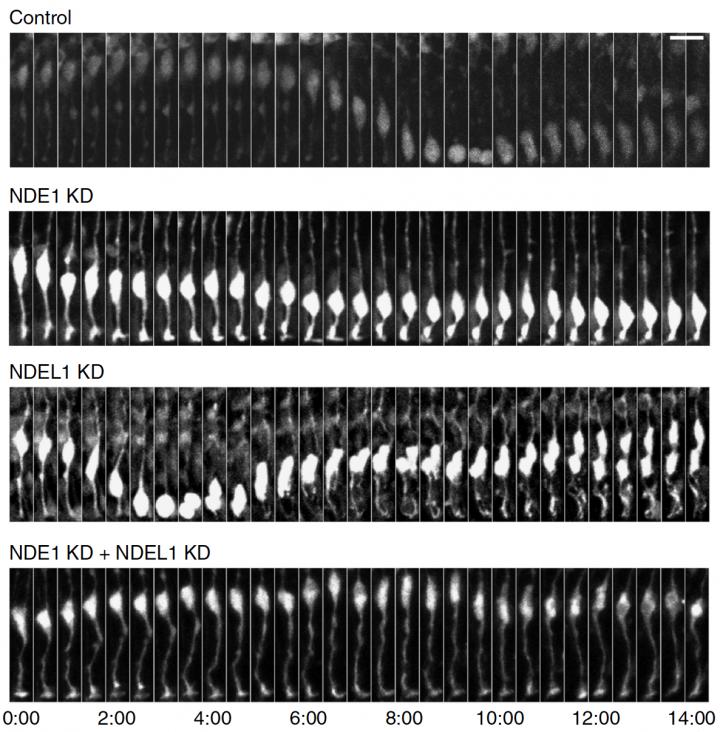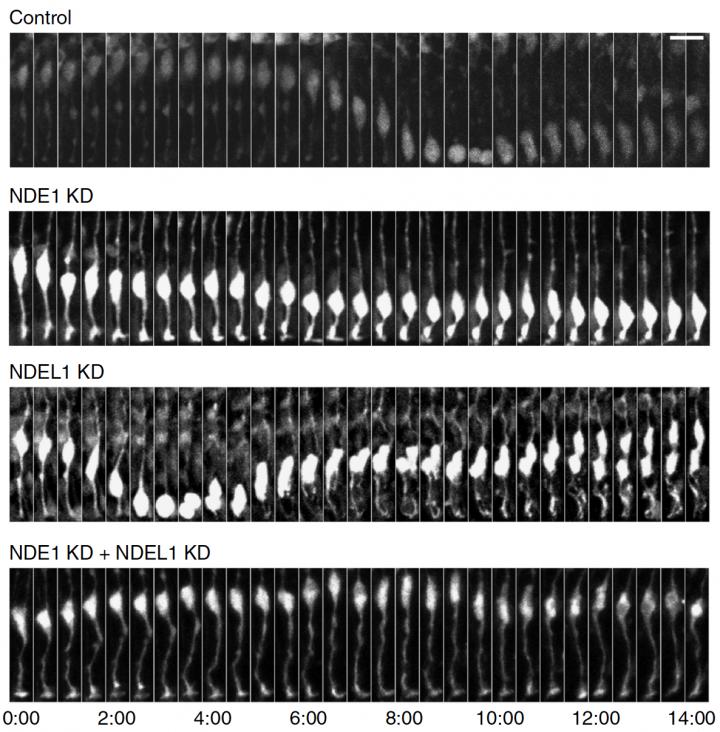
In a very severe, genetic form of microcephaly, stem cells in the brain fail to divide, according to a new Columbia University Medical Center study that may provide important clues to understanding how the Zika virus affects the developing brain.
The study was published August 24 in Nature Communications.
Due to the Zika virus, the world is suffering from its first known epidemic of microcephaly, a devastating brain developmental condition that substantially reduces the number of neurons in the brain, along with brain size and function at birth.
Mutations in a number of human genes have been implicated in causing the relatively rare occurrence of this disease. Mutations in one such gene – NDE1 (referred to as "nood-E") – cause a particularly severe form of microcephaly. The Columbia researchers — David Doobin, an MD/PhD student, Richard Vallee, PhD, professor of pathology and cell biology, and others in Dr. Vallee's lab — reasoned that investigating NDE1's role in microcephaly should provide important clues to the causes of microcephaly in general.
In the study, the researchers found that interfering with NDE1 expression severely inhibited the proliferation of stem cells in the developing rat brain. These stem cells, known as radial glial progenitors (RGPs), undergo rapid repeated divisions over the weeks-to-months-long process of brain development.
Other genes that cause microcephaly are known to impair RGP proliferation, usually by interrupting the cells when they are in the midst of dividing.
The new study found that NDE1 defects can stop RGPs before division even begins at three distinct arrest points. The net result is a complete failure of these cells to divide, explaining the severity of the NDE1-associated microcephaly.
Numerous labs are investigating the effects of Zika on the developing brain, and some studies already suggest that the virus targets RGP cells in the developing brain. Dr. Vallee's lab, along with that of Vincent Racaniello, PhD and Amy Rosenfield, PhD, in Columbia's Department of Microbiology, plan to test for similarities in the damage to neuronal stem cells caused by Zika virus vs. NDE1 mutations.
###
The study is titled, Severe NDE1-Mediated Microcephaly Results from Neural Progenitor Cell Cycle Arrests at Multiple Specific Stages. Additional authors: Shahrnaz Kemal and Tiago J. Dantas (Columbia University Medical Center).
The research was supported by the NIH (R01 HD40182, F30NS095577) and an American Heart Association/American Stroke Association postdoctoral fellowship (15POST25080068).
The authors declare no conflicts of interest.
Columbia University Medical Center provides international leadership in basic, preclinical, and clinical research; medical and health sciences education; and patient care. The medical center trains future leaders and includes the dedicated work of many physicians, scientists, public health professionals, dentists, and nurses at the College of Physicians and Surgeons, the Mailman School of Public Health, the College of Dental Medicine, the School of Nursing, the biomedical departments of the Graduate School of Arts and Sciences, and allied research centers and institutions. Columbia University Medical Center is home to the largest medical research enterprise in New York City and State and one of the largest faculty medical practices in the Northeast. For more information, visit cumc.columbia.edu or columbiadoctors.org.
Media Contact
Lucky Tran, Ph.D.
[email protected]
212-305-3689
@ColumbiaMed
http://www.cumc.columbia.edu





